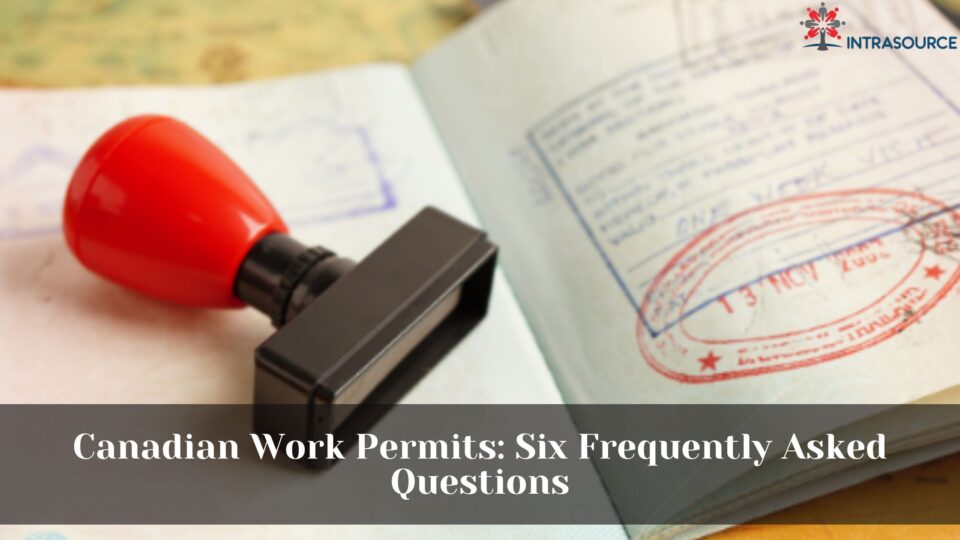Canadian work permits allow foreign nationals to work and live temporarily in Canada, while also boosting their chances of qualifying for economic permanent residence (PR) programs through the acquisition of Canadian work experience.
Here, we address six of the most commonly asked questions about Canadian work permits, compiled by CIC News.
What kinds of work permits are available?
Canadian work permits can be categorized into two main types:
- Open Work Permits (OWPs): These permits allow holders to work for almost any employer in Canada, or in any industry.
- Employer-Specific/Closed Work Permits: These permits restrict the holder to working for a specific employer, and often include conditions related to the job location and duration. Often requiring a Labour Market Impact Assessment (LMIA), these permits assess the impact of hiring a foreign worker on the Canadian labor market. A successful LMIA returns a positive or neutral result, supporting the work permit application.
How long does it take to process a work permit application?
Processing times can vary significantly depending on the type of work permit, the applicant’s location (inside or outside Canada), and other factors. To assist with these variations, Immigration Refugees and Citizenship Canada (IRCC) offers an updated processing times tool that takes into account current capacity and application backlogs.
Can visitors in Canada apply for a work permit?
Under normal circumstances, visitors in Canada—those on a visitor visa but not holding a study or work permit—cannot apply for work permits while in Canada. However, due to a temporary policy change during the COVID-19 pandemic, expiring February 28th, 2025, certain visitors can now apply for employer-specific work permits.
To qualify, applicants must:
- Be physically present in Canada when applying;
- Remain in Canada throughout IRCC’s processing period (leaving will render them ineligible under this policy);
- Apply between August 24, 2020, and February 28, 2025;
- Hold valid visitor status at the time of application;
- Restore their visitor status if it has expired before applying for the work permit.
Note: Certificat de sélection du Québec (CSQ) holders are also eligible under this public policy. This document is issued by Quebec’s immigration authority and confirms the holder has been selected to settle in Quebec.
Can Applicants Appeal a Decision on Their Work Permit Application?
Canada’s Immigration and Refugee Protection Act—the federal legislative Act that governs the country’s immigration policies—does not provide a right of appeal for decisions concerning temporary resident applications such as work permits, study permits, or visitor visas.
Instead, IRCC encourages applicants to reapply, ensuring that a different immigration officer reviews the new application, if possible.
If an applicant believes that procedural standards were not followed during the processing of their application, they can seek a judicial review. This legal procedure involves the Federal Court of Canada reviewing the actions of the processing officer. In a judicial review process, the applicant would be represented by a lawyer in Canada.
Replacing a Lost, Stolen, or Destroyed Work Permit
Holders of work permits who have lost or otherwise no longer possess their physical work permit must apply for a replacement document.
In addition to completing an application form, they are required to pay a fee to have their work permit reissued.
Applying for a Work Permit Upon Arrival in Canada
While IRCC encourages all newcomers who need a work permit to apply before arriving in Canada, certain individuals may be eligible to apply at a Canadian port of entry (POE). To be considered eligible for this option, applicants must:
- Be from a visa-exempt country;
- Be eligible for an electronic travel authorization (eTA) or travel to Canada without needing a visitor visa;
- Meet all other specific requirements relevant to the type of work permit for which they are applying.
However, newcomers will not be able to apply for a work permit at a POE if they:
- Require a visitor visa to enter Canada;
- Are applying for a Post-Graduation Work Permit (PGWP);
- Are citizens of an eligible visa-required country;
- Are applicants under the International Experience Canada (IEC) program who are neither citizens nor permanent residents of the United States;
- Are applying under the Seasonal Agriculture Worker Program.
Applicants seeking to obtain their work permit at a Canadian POE may also need to undergo a medical examination as part of their application.


